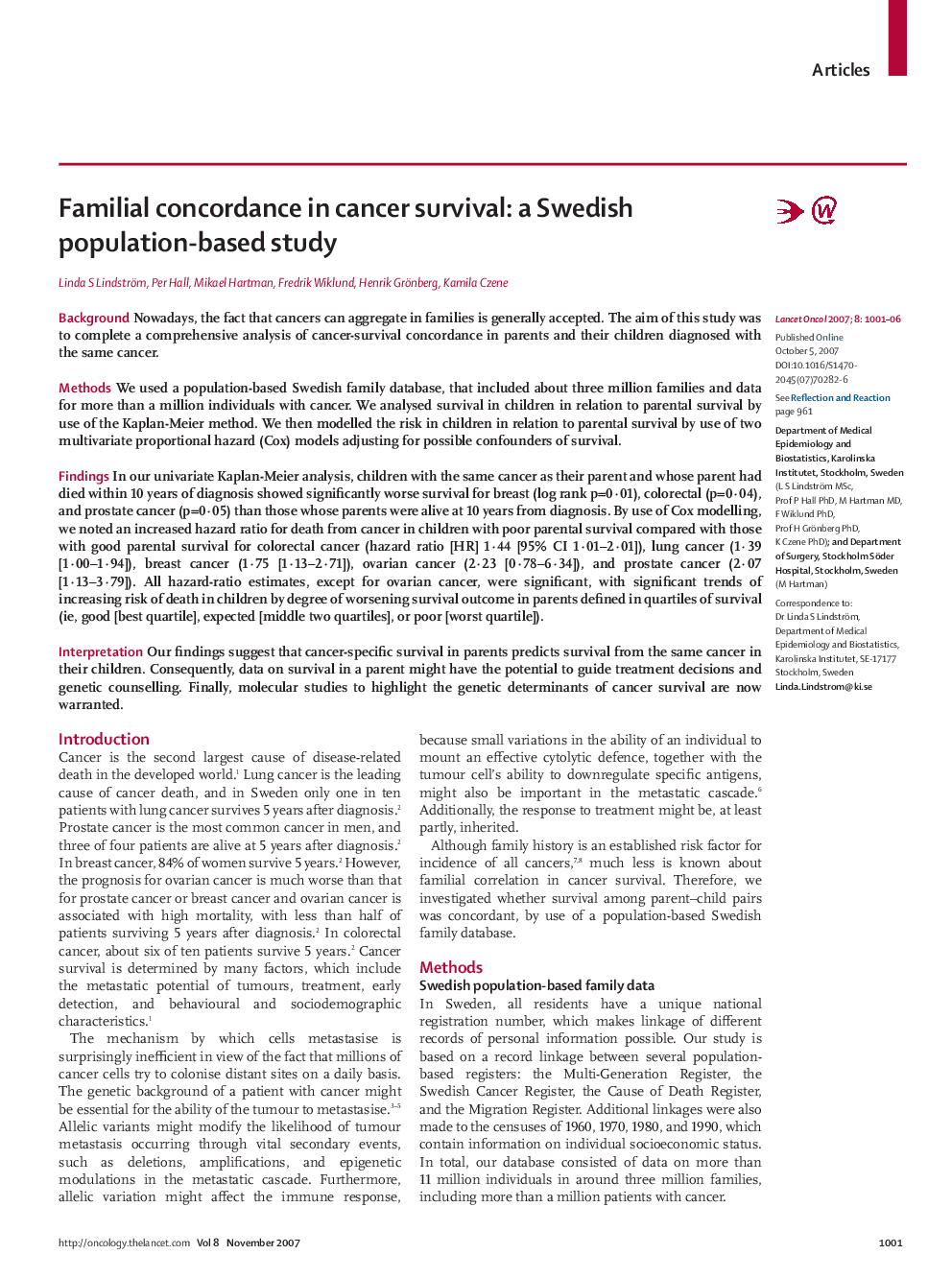| کد مقاله | کد نشریه | سال انتشار | مقاله انگلیسی | نسخه تمام متن |
|---|---|---|---|---|
| 3996196 | 1258977 | 2007 | 6 صفحه PDF | دانلود رایگان |

SummaryBackgroundNowadays, the fact that cancers can aggregate in families is generally accepted. The aim of this study was to complete a comprehensive analysis of cancer-survival concordance in parents and their children diagnosed with the same cancer.MethodsWe used a population-based Swedish family database, that included about three million families and data for more than a million individuals with cancer. We analysed survival in children in relation to parental survival by use of the Kaplan-Meier method. We then modelled the risk in children in relation to parental survival by use of two multivariate proportional hazard (Cox) models adjusting for possible confounders of survival.FindingsIn our univariate Kaplan-Meier analysis, children with the same cancer as their parent and whose parent had died within 10 years of diagnosis showed significantly worse survival for breast (log rank p=0·01), colorectal (p=0·04), and prostate cancer (p=0·05) than those whose parents were alive at 10 years from diagnosis. By use of Cox modelling, we noted an increased hazard ratio for death from cancer in children with poor parental survival compared with those with good parental survival for colorectal cancer (hazard ratio [HR] 1·44 [95% CI 1·01–2·01]), lung cancer (1·39 [1·00–1·94]), breast cancer (1·75 [1·13–2·71]), ovarian cancer (2·23 [0·78–6·34]), and prostate cancer (2·07 [1·13–3·79]). All hazard-ratio estimates, except for ovarian cancer, were significant, with significant trends of increasing risk of death in children by degree of worsening survival outcome in parents defined in quartiles of survival (ie, good [best quartile], expected [middle two quartiles], or poor [worst quartile]).InterpretationOur findings suggest that cancer-specific survival in parents predicts survival from the same cancer in their children. Consequently, data on survival in a parent might have the potential to guide treatment decisions and genetic counselling. Finally, molecular studies to highlight the genetic determinants of cancer survival are now warranted.
Journal: - Volume 8, Issue 11, November 2007, Pages 1001–1006